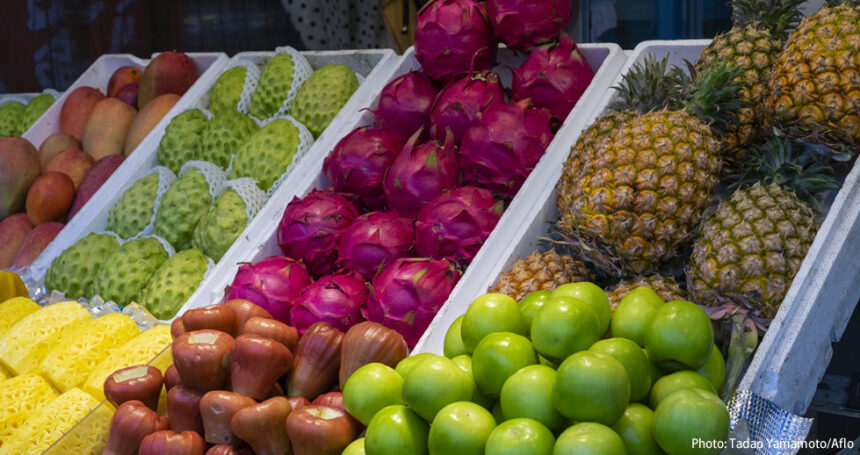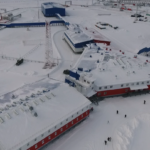Summary by Geopolist | Istanbul Center for Geopolitics
The article from the Japan Institute of International Affairs analyzes China’s trade barrier investigation against Taiwan, initiated in April 2023. It discusses China’s retaliatory measures, including the partial suspension of tariff-free treatment for certain Taiwanese products starting January 2024. Taiwan criticizes these actions as economic coercion, arguing they violate WTO and ECFA norms. The investigation marks a shift in China’s approach, potentially expanding economic pressures from agricultural to industrial products, reflecting broader tensions in cross-strait relations.
Read the full article below.
Research Group on ‘China’ FY2023-# 2
“Research Reports” are compiled by participants in research groups set up at The Japan Institute of International Affairs, and are designed to disseminate, in a timely fashion, the content of presentations made at research group meetings or analyses of current affairs. “Research Reports” represent their authors’ views.
In April 2023, the Chinese Ministry of Commerce initiated a trade barrier investigation in response to Taiwan’s import restrictions on China. Based on the results, the Customs Tariff Commission of the State Council of China has been applying retaliatory measures against Taiwan as of January 1, 2024. In this paper, I aim to examine in what aspects this series of measures represents novelty in China’s policy towards Taiwan.
Background of the Taiwan trade barrier investigation
Both China and Taiwan are members of the World Trade Organization (WTO)1. However, Taiwan has imposed stricter economic exchange regulations on China than have other WTO members due to reasons related to “national security” and “industrial development.” Typical of these are the import restrictions on specific items from China. As of February 19, 2024, 2,513 Chinese products – accounting for 20.0% of all Chinese products – are subject to import bans2, primary among them being agricultural and aquatic products, base metals and their products, textiles and their products, machinery and electrical equipment, and transportation equipment and their components.
On April 12, 2023, China’s Ministry of Commerce announced that it would launch an investigation based on the Foreign Trade Law and the Rules for the Investigation of Foreign Trade Barriers at the request of relevant Chinese industry associations to determine whether these Taiwanese item-by-item import restrictions on China constitute trade barriers3. While the investigation period was set to begin that same day and last until October 12, 2023, it was noted that, in special circumstances, the investigation period could be extended through January 12, 2024, the day before the Taiwan presidential and legislative elections.
The Chinese Ministry of Commerce spokesperson had already stated on August 17, 2023 that, “based on preliminary findings, there are suspicions that Taiwan’s trade regulations towards China violate principles such as the WTO’s ‘non-discrimination principle’ and ‘principle of fully abolishing quantitative restrictions'”4. However, it wasn’t until December 15, 2023 that the Chinese Ministry of Commerce released its final investigation report declaring that these regulations constituted trade barriers5. The grounds for this decision included: 1) violations of GATT Article 1.1 on most-favored-nation treatment, GATT Article 11.1 (General Elimination of Quantitative Restrictions), and Article 2.1 of the Economic Cooperation Framework Agreement (ECFA)6 (equivalent to a free trade agreement (FTA) between China and Taiwan) (violations of ECFA provisions calling for the progressive reduction and the elimination of trade barriers), and 2) demonstrated harm caused by the import regulations in question.
On December 21 of the same year, the Customs Tariff Commission of China cited violations of the ECFA by Taiwan when announcing that it would be partially suspending the zero-tariff treatment that had been applied to 539 items under the ECFA, effective January 1, 20247. Among the items selected for suspension were 12 petroleum chemical products (e.g., paraxylene, propylene, and vinyl chloride).
Taiwan’s response: China’s measures inappropriate and contrary to WTO and ECFA, seen as part of economic coercion
Taiwan has criticized the lack of transparency in China’s Taiwan trade barrier investigation, its deliberate refusal to consult with Taiwan, and its unilateral determination of results, arguing that the partial suspension of the ECFA based on this investigation violates WTO and ECFA norms and provisions. Taiwan views the partial suspension of the ECFA as part of China’s “economic coercion”8. The Mainland Affairs Council, responsible for planning and executing Taiwan’s policies towards China, points out that this move aims to influence elections in the short term and promote unification and weaken the Taiwanese economy in the long term, leading to a “lock-in with mainland China”. Furthermore, the Mainland Affairs Council emphasizes that issues related to cross-strait trade should be addressed through existing dispute settlement mechanisms based on the WTO’s fundamental principles, promoting communication and dialogue without setting any political prerequisites or adhering strictly to formalities, and calls on the Chinese side to engage in such discussions.
On the other hand, China maintains the position that “any issues regarding the ECFA can be appropriately resolved through negotiations on the basis of the ‘1992 Consensus'”9. It asserts that there is no room for negotiation with a Democratic Progressive Party (DPP) government that does not accept the “1992 Consensus”, and it refuses to engage in dispute settlement through the WTO.
How novel is the partial suspension of the ECFA based on the Taiwan trade barrier investigation?
The current partial suspension of the ECFA based on the Taiwan trade barrier investigation differs significantly from the previous Chinese trade measures against Taiwan that were denounced by Taiwan as “economic coercion” in that it was initiated for violations of a “bilateral agreement” (the ECFA), bearing in mind as well violations of the “international rules” spelled out by the WTO (as noted in the trade barrier finding).
During President Tsai Ing-wen’s administration, China has frequently placed temporary import suspensions on Taiwanese products, e.g., pineapples, sugar apples, Java apples, grouper, citrus fruits, frozen mackerel and swordfish, alcoholic beverages, processed foods, and mangoes. These import suspensions have been based on violations of Chinese domestic regulations. The specific reasons cited include the detection of pests or prohibited substances, COVID-19 on packaging, or antibiotics or pesticides exceeding standards as well as insufficient registration information.
Furthermore, there is novelty in the measures stemming from the Taiwan trade barrier investigation in that they critique not “specific items or industries” but rather the “regime” of Taiwan’s import regulations on China. The petroleum chemical products targeted in the partial suspension of the ECFA in this instance did not inherently violate any Chinese domestic laws. They were merely selected as “retaliatory” targets. In this respect, too, they differ in character from previous actions.
Additionally, there are voices within Taiwan suggesting that the Taiwan trade barrier investigation may serve as a catalyst for expanding “economic coercion” from agricultural and aquatic products to industrial products. On January 9, 2024, a spokesperson from the Chinese Ministry of Commerce stated that the ministry was studying the suspension of tariff-free status for machinery, automotive parts, and textiles in addition to agricultural and aquatic products10. If the partial suspension of the ECFA is indeed extended to a broader range of products as indicated by this statement, it may come to be regarded as a turning point in China’s policy towards Taiwan.
The future course and impact of the partial suspension of the ECFA based on the Taiwan trade barrier investigation
The aim behind China’s novel decision to undertake the trade barrier investigation and to partially suspend the ECFA has been the subject of considerable debate in Taiwan. Various discussions have taken place, with many participants coming to the conclusion that China desires to prevent a prolonged tenure for the Democratic Progressive Party (DPP) government. However, in the presidential election on January 13, the DPP candidate, Lai Ching-te, who had been criticized by China as a “stubborn ‘advocate of Taiwan independence'”11, emerged victorious.
Lai does not acknowledge the “1992 Consensus” that China considers a prerequisite for dialogue. At the same time, China dislikes the “internationalization of the Taiwan issue” and has avoided resolving trade issues through the WTO as Taiwan wishes. It is unlikely that China’s stance will change12. A bold reassessment of Taiwan’s import regulations towards China will not be easy for the Lai administration because these regulations are based on considerations for Taiwan’s “national security” and “industrial development”, as mentioned above.
It is considered unlikely that China will completely suspend the ECFA, as doing so could give the impression both domestically and internationally that progress along the path to “peaceful reunification” through “cross-strait integration and development” has stalled. However, considering the actions and statements of the Lai administration as well as China’s own economic situation marked by overproduction and supply shortages, it cannot be ruled out that China may gradually reduce the number of items eligible for tariff-free treatment.
Under the ECFA, the items subject to zero tariffs accounted for only 4.3% of Taiwan’s total exports in 2022. Therefore, even if the number of items subject to partial suspension of the ECFA were to increase, the direct impact on Taiwan’s macroeconomy would likely be limited13. Nevertheless, the increase in suspended items could be perceived as a barometer of tension in cross-strait relations and negatively affect economic activities by, for instance, making potential investors hesitant to put their money into China and Taiwan. Continued vigilance is thus warranted.
(This is an English translation of a Japanese paper originally published on March 6, 2024)
1 China joined the WTO on December 11, 2001, while Taiwan joined on January 1, 2002, under the name “Separate Customs Territory of Taiwan, Penghu, Kinmen, and Matsu” (commonly known as Chinese Taipei).
2 Jingjibu Guoji Maoyi Shu (International Trade Administration of the Ministry of Economic Affairs), “Huopin Ziliaobiao Xiazai (Download Product Information Sheet): Si. (IV) Dalu Wupin Huizongbiao (Mainland Product Compendium), 4. Dalu Wupin Tongjibiao (Statistical Table of Mainland Products).” https://fbfh.trade.gov.tw/fh/ap/downLoadListf.do, accessed on February 19, 2024.
3 Shangwubu (Ministry of Commerce), “Shangwubu Gonggao 2023 Nian Di 11 Hao (Announcement No. 11, 2023 of the Ministry of Commerce): Shangwubu Guanyu Jiu Taiwan Diqu Dui Dalu Maoyi Xianzhi Cuoshi Jinxing Maoyi Bilei Diaocha de Gonggao (Announcement by the Ministry of Commerce on the Trade Barrier Investigation of Taiwan’s Restrictions on Mainland Trade),” April 12, 2023, http://www.mofcom.gov.cn/article/zwgk/gkzcfb/202304/20230403403369.shtml, accessed on February 19, 2024.
5 Shangwubu (Ministry of Commerce), “Shangwubu Gonggao 2023 Nian Di 54 Hao (Announcement No. 54, 2023 of the Ministry of Commerce): Shangwubu Guanyu Jiu Taiwan Diqu Dui Dalu Maoyi Xianzhi Cuoshi Jinxing Maoyi Bilei Diaocha Zuizhong Jielun de Gonggao (Announcement by the Ministry of Commerce on the Final Conclusions of the Trade Barrier Investigation of Taiwan’s Restrictions on Mainland Trade),” December 15, 2023, http://file.mofcom.gov.cn/article/zcfb/gpmy/202312/20231203460950.shtml, February 19, 2024.
6 The Economic Cooperation Framework Agreement (ECFA) is an arrangement equivalent to an FTA between China and Taiwan that came into effect on September 12, 2010. The early harvest method was adopted and, regarding trade in goods, China agreed to reduce tariff rates to zero on 539 Taiwanese products by January 1, 2013 while Taiwan agreed to reduce tariff rates to zero on only 267 Chinese products by January 1, 2013.
7 Guowuyuan Guanshui Shuize Weiyuanhui (Customs Tariff Commission of the State Council), “Guowuyuan Guanshui Shuize Weiyuanhui Guanyu Zhongzhi <Haixia Liangan Jingji Hezuo Kuangjia Xieyi> Bufen Chanpin Guanshui Jianrang de Gonggao (Notice by the Customs Tariff Commission of the State Council on Suspending Tariff Reductions on Certain Products under the Cross-Strait Economic Cooperation Framework Agreement),” December 20, 2023, https://gss.mof.gov.cn/gzdt/zhengcefabu/202312/t20231221_3923283.htm, accessed on February 19, 2024.
8 Dalu Weiyuanhui (Mainland Affairs Council), “Xinwengao (News Release) Luweihui Jinggao: Zhongguo Ru Yizai Qitu Jiexuan Zhong Jiang Zishieguo (MAC Warns: The CCP’s Repeated Attempts at Election Interference Will Ultimately Backfire)”, December 21, 2023, https://www.mac.gov.tw/News_Content.aspx?n=B383123AEADAEE52&sms=2B7F1AE4AC63A181&s=7399DAFC84F7D46B, accessed on February 19, 2024, Xingzhengyuan Jingmao Tanpan Bangongshi (Office of Trade Negotiations of the Executive Yuan), “Jishi Xinwen Jingmao Bangongshi Huyu: Zhongguo Ying Liji Tingzhi Jie Jingji Xiepo Caonong Jiexuan (Breaking News: Office of Trade Negotiations Urges: China Should Immediately Cease Economic Coercion and Manipulation in the Electoral Process),” January 9, 2024, https://www.ey.gov.tw/otn/8E7CF7585049FAB6/587cde92-7909-4c78-94df-084628b3a8bc, accessed on February 19, 2024.
10 Shangwubu (Ministry of Commerce), “Shangwubu Xinwen Fayanren Jiu Zhongzhi <Haixia Liangan Jingji Hezuo Kuangjia Xieyi> Bufen Chanpin Guanshui Jianrang Jinzhan Da Jizhe Wen (Spokesperson of the Ministry of Commerce Answers Questions on Progress in Suspending Tariff Reductions on Certain Products under the Cross-Strait Economic Cooperation Framework Agreement),” January 9, 2024, http://www.mofcom.gov.cn/article/xwfb/xwfyrth/202401/20240103465417.shtml, accessed on February 19, 2024.
11 Guowuyuan Taiwan Shiwu Bangongshi (Taiwan Affairs Office of the State Council). “Guotaiban: Lai Qing-de Tiaoxin Yanlun Shifen Weixian, Xiwang Guangda Taiwan Tongbao Renqing “Taidu” de Jiduan Weixianxing (The State Council Taiwan Affairs Office: Lai Ching-te’s Provocative Remarks Are Extremely Dangerous; Hoping That Broad Masses of Taiwanese Compatriots Recognize the Extreme Danger of “Taiwan Independence”),” December 21, 2023, http://www.gwytb.gov.cn/xwdt/xwfb/wyly/202312/t20231221_12589023.htm, accessed on February 19, 2024.
12 In its Taiwan trade barrier investigation, China alleges that Taiwan’s import regulations violate both WTO principles and the ECFA. However, when it comes to specific retaliatory measures, namely the partial suspension of the ECFA for 12 items, China cites ECFA violations as the sole basis for this action.
13 According to a survey conducted in December 2023 by the Taiwan Public Opinion Foundation, when asked whether measures similar to the suspension of tariff preferences on the aforementioned 12 products would affect their voting decisions if the Chinese Communist Party were to implement such measures before the Taiwanese elections, 88.4% of respondents answered “no impact” and 6.6% answered “could impact.” You Ying-lung, “2023 Nian 12 Yue Quanguoxing Minyi Diaocha Zhaiyao Baogao 2024 Taiwan Zongtong yu Liwei Xuanju Keneng Jieguo yu Yingxiang (Summary Report of December 2023 Nationwide Opinion Poll: Possible Results and Impacts of the 2024 Taiwan Presidential and Legislative Elections),” December 29, 2023, p. 24, https://www.tpof.org/wp-content/uploads/2023/12/TPOF-12%E6%9C%88%E6%B0%91%E8%AA%BF%E5%A0%B1%E5%91%8A.pdf, accessed on February 19, 2024.







